#koteshwar mahadev temple
Explore tagged Tumblr posts
Text
Ukhimath, located in the picturesque Rudraprayag district of Uttarakhand, India, is a serene destination known for its spiritual significance and natural beauty. This charming town serves as a pivotal point for travelers exploring the Garhwal Himalayas, offering a tranquil atmosphere amidst stunning mountain vistas and cultural heritage sites. Ukhimath is particularly revered for its spiritual sanctuaries, including the sacred Kalimath Temple dedicated to Goddess Kali. Just 20 kilometers from the Koteshwar Mahadev Temple, Kalimath Temple attracts devotees seeking blessings and solace in its peaceful surroundings, making it a spiritual retreat of immense importance in the region.

One of the lesser-known offbeat places in Ukhimath is Deoria Tal, a serene lake situated at an altitude of 2,438 meters above sea level. Located near the village of Sari on the Ukhimath – Chopta road, Deoria Tal is renowned for its breathtaking views of the Chaukhamba Range reflected in its crystal-clear waters. Believed to be a sacred bathing place for gods in ancient times, Deoria Tal offers visitors a tranquil escape from the hustle and bustle of urban life. The night sky above the lake transforms into a mesmerizing canvas of stars, enchanting visitors and offering a glimpse into the pristine beauty of Uttarakhand's natural landscapes.

Exploring Ukhimath offbeat places like Deoria Tal and the tranquil settings around Kalimath Temple allows travelers to immerse themselves in the serene beauty and spiritual aura of Rudraprayag district. These hidden gems not only offer stunning natural landscapes and spiritual sanctuaries but also provide opportunities for solitude, reflection, and connection with nature amidst the majestic Garhwal Himalayas. Whether you're drawn to spiritual journeys, scenic trekking routes, or simply seeking moments of peace, Ukhimath promises a memorable and enriching experience off the beaten path in Incredible India.
#clearholidays#ukhimath#ukhimath tourism#places to visit in rudraprayag#offbeat places#offbeat tourism#uttarakhand#india#indian#travel#india travel#india tourism#incredible india#ukhimath offbeat places#offbeat places in ukhimath
3 notes
·
View notes
Text
Up Close to Garhwal Himalayas - A Trekking Trip to Chopta, Tungnath, Chandrashila and Deoria Tal
Well, we had been to the mountains several times before, but never indulged in any uphill summit trekking leading up to the 13000 ft+ elevation levels. This in mind, initially, we two, the Bisht’s, planned to go to this trekking trip covering Chopta-Tungnath-Chandrashila-Deoria Tal. And, then the word spread, and five more, the Negi���s and the Rawat’s, joined us for this adventurously lifelong memorable trekking trip.
In the second week of June 2023, we all undertook this 5-daylong, 1000 kms+ self-driven trip to higher reaches of Uttarakhand. We took the route from Delhi to Haridwar to Rishikesh to Devprayag to Srinagar to Rudraprayag to Agastyamuni to Ukhimath to Chopta to Sari Village (for Deoria Tal). Enroute, we detoured slightly to the revered shrines of Maa Dhari Devi, Srinagar and The Koteshwar Mahadev, Rudraprayag.
On Day1, we took a midway halt at Jayalgarh (10kms before Srinagar), a beautiful campsite arrayed on the banks of river Alaknanda. A piece of advice to all the travelers – avoid passing through Rishikesh on the weekends, otherwise you will end up facing multiple diversions, and sweat it out over the struggles of negotiating serpentine queues of a torturous bumper-to-bumper traffic right up to the Shivpuri. It’s a colossal waste of time and energy dealing with such heavy jams. And, if no option, pass through Rishikesh around the wee hours.
We were late to reach Jayalgarh, reaching by 6.30pm; exhausted due to the Rishikesh traffic, we rested a bit for whatever little time we had. After some rest, we walked down to the riverbank and had some serene moments with our feet dipped in the cold flowing waters of Alaknanda. Allure of the Alaknanda is such that we revisited the riverbanks early in the morning just to witness the orangey dawn over the white sand banks and the morning mistiness of the river.
Our trip on Day2 started with a holy visit to the much-revered Maa Dhari Devi, regarded as the guardian protector deity of the state of Uttarakhand, the temple seating an avatar of Goddess Kali. Jai Maa Dhari Devi is a sacred temple in the Garhwal region, and is structured beautifully, with all its shine and glory, in the middle of Alaknanda River, which is connected to the adjacent hill through a foot bridge. The temple’s architecture is splendid, colourful and has intricate wooden designs and carvings around it. We all offered our holy prayers, soaked ourselves in the holiness of the deity, bought a few souvenirs and headed to our next stopover: Koteshwar Mahadev cave temple.
As we reached Koteshwar Mahadev - which is at a slight detour of 3-4 kms after crossing over the Rudraprayag Bridge - the amazing sight of the two parallelly imposing rocks standing next to each other welcomes you, with river Alaknanda gushing through the vertical gap, which not only beholds your attention and gaze but also mesmerizes you with its Grand Canyon like settings. Lord Shiva is seated inside a spring-water-dripped cave, which is naturally cool and dark and is dotted with several Shivlings. We offered our prayers to the almighty and headed to our ultimate destination, Chopta.
I must say that roads condition, overall, was just great; driving through the serpentine courses, forests, riverbanks, and the rocky terrain was a super pleasure. Late afternoon, we reached the picturesque hamlet, Chopta, located at an elevation of 9000 ft., is also famously known as the mini-Switzerland of Uttarakhand. The environ here was cool and wintry. We indulged in a bit of cricket match in the open spaces of the resort along with their staff members. By the night, our jackets were out as the weather had turned much colder. Heating appliances were not available as our stay was in the protected forest area, so the power supply was through solar means only, and that too in the fixed time slot of 7pm to 5am. Aside, we had a blessing in disguise; the mobile signals were hugely erratic, rather phones were down with no network during our time in Chopta. A small stream was also flowing by our cottage side. We gathered and gossiped around the stream sitting on the boulders, cooling our drinks in its icy waters and enjoyed our moments together in the lap of nature. As the sunlight dimmed, surroundings descended to pitch dark, and such was the darkness that it was quite frightening to even peep outside from our cottages in the late night.
On Day3, we woke up early, naturally, awakened by the constant chirping and coo of the birds of different species. Done with morning chores, we packed our breakfast and headed to the Tungnath trek point, about 4-5kms from our stay. On the way, by the roadside, we spotted a group of big-sized vultures feasting heartily on a decaying cow, possibly hunted down, or fallen off the cliff.
We reached the Tungnath base point at around 8am, lest we got late, it was time to start our trek to the world’s highest located Lord Shiva temple, Tungnath Mahadev. We parked our vehicles safely and sequentially by the hillside on the very tight spaces of the single lane road. Mules were also available, but we decided to trek on our own strength. We rented the sticks for the ones who needed it; stocked water bottles in our bag packs; wore our hats and started off spiritedly and spiritually by chiming aloud the bell at the gateway with chants of Har Har Mahadev. It’s a 4km trek, which gets steeper with every step-up. Phew! As we move up, lush green grassed meadows start to appear out of nowhere, surrounded by mountainous terrain and snowcapped ridges. Weather also keeps changing its mood – sometimes it’s sunny, sometimes it’s cloudy, sometimes it’s drizzling, sometimes it’s windy. One can experience all shades of the nature in this 4km long trek! As the climb gets steeper, the destination appears farther away as we start to huff and puff, taking frequent pitstops to normalise the heavy breathing, sipping water in between, and then restarting the trek. But, once we sighted the temple top as we looked up from a distance, we felt reenergized and relieved that our treacherous trek is now almost over. As the trek ended, and as we reached the temple’s premises, all our trekking tiredness vanished in a jiffy. Such is the aura of this sacred temple of Tungnath ji, perched at a high altitude of 12000 ft+. We queued up and offered our heartfelt prayers to the almighty - Lord Shiva Mahadev - and took the holy blessings. Inside the temple, it was all a divine experience with feelings of the divinity everywhere in, triggering the goosebumps. We took a lap of the temple, offering obeisance to all the deities around, and came out bowed down in reverence and holiness.
It was 1pm by the time we finished our prayers; five amongst us decided to rest and refresh and not to trek further up to Chandrashila. I, along with my brother-in-law, decided to conquer the ultimate Chandrashila peak, which is located 1 km further above of Tungnath. This 2nd stretch of the trek was much steeper than we had anticipated. And, in fact, it was even more treacherous and tougher than our just completed trek of Tungnath. 1km appeared easier in comparison to the 4kms we had done already - but in reality - it was as good as trekking 4kms again! With small baby steps, and with the might and awe of Lord Mahadev, we eventually, made it to the summit - The Chandrashila peak - an altitude of 13000 ft+. There is a small temple perched at the top, painted in white with flags and worship bands tied on it, dedicated to the Goddess Ganga. We offered our prayers, clicked a few pictures, and soaked in the cool fresh breeze atop as much as we could. Unfortunately, the weather turned cloudy and dark, and we couldn’t see clearly the much sought after 360-degree panoramic view of the snow-laden mountains, sky-high ridges, and the scenic surroundings of the green meadows. With looming rains, we quickly started to trek down. Enticed by the short-cuts, I tripped down twice over the sloping and moist meadows without any hurt though, which is nature’s way of telling us to follow the designated path. We rejoined our group at Tungnath, took some refreshments, and then headed back to the base point. Though trekking down takes lesser time, but I found it tougher than trekking up as one not only battles the gravitational pull but also the challenge of body weight balancing itself solely on the calf muscles and the knees. At around 3.30pm, we finally reached back to the Tungnath base after completing a tough uphill-and-downhill trek. As we had already checked-out from our Chopta stay, we were now headed to our next halt, the Sari Village, about 25kms downhill, at an elevation of 6,500 ft. We reached Sari, a beautiful village, and the base point of Deoria Tal, at around 5pm.
We started the Day4 excursion with an early breakfast and got ready for our 2.5km trek to Deoria Tal, a pristine emerald-green lake at an altitude of 8000 ft, part of the Kedarnath Sanctuary. The lake is perched at the hilltop and nestled in the dense forest around it. This trek was shorter in comparison to Tungnath, and not that steep but it was a tough trek as the path was a bit stony and patchy. And, it becomes more difficult, especially, if you are trekking late in the noon under the scorching sun. The trek has few eateries on its route run by the locals. We started the trek at around 9am. The entry point starts from the Sari village. It took us some sweating efforts to reach at the top. The very moment the trek ends, a stunning lakeview welcomes you with its open green spaces. A small forest checkpoint is at one corner where you can buy the entry tickets. The whole area around it has a magically soothing relaxing feel. The minty freshness and the greenery of the place reenergizes the body and the soul evenly. At the ground level, the lake is surrounded by meadows and the jungles; and when you look up at the sky around, the rising snowcapped Chaukhamba range of the Himalayas makes its imposing presence felt. The Himalayan view as seen from our own eyes is truly fantastic, and its reflection on the emerald surface of the lake makes it even more grandeur. We took a walk around the lake, which is roughly an 800 mtr circled path, passing through the forests and the open spaces. Besotted by the picturesque lake and the gigantic Himalayas around, we spent close to two hours absorbing the magnificent nature and its mesmerising beauty. We leisurely laid ourselves down on the grass beds, lying under the cool and calming shades of the trees soaking in the freshness of the environ. After our delightful time at the lake, we returned to the Sari village, enroute visiting an elegant antique temple, of Lord Shiva, built by a local priest. It was 2pm by the time we returned to our base, had a hearty lunch, and then it was all rest in the lovely weather of Sari.
On Day5, we started our journey back; while one family went straight to Delhi, we, two families, stayed back enroute at a Rishikesh resort for a relaxing pool time and restful night after the tough trekking pursuits we had undertaken all these days. We had started our trip with a stay at Alaknanda riverbanks, and now ending it again with our stay on the riverbanks of the holy Ganges. In the evening, we sat on the banks of the calmly flowing river Ganges. It was quite breezy and sandy, but it offered us wonderfully peaceful moments sitting on the boulders, gazing at the rafts and kayaks pass by us, with our feet downed in the cold waters. As the water levels begun to rise and sunlight faded, we returned to our resort.
On Day6, we left Rishikesh early, and reached back Delhi by late afternoon.
A fabulous trip with blissful moments, for all of us; to be cherished forever!!!
Anil Bisht
more pictures here: instagram.com/anil_bisht_/
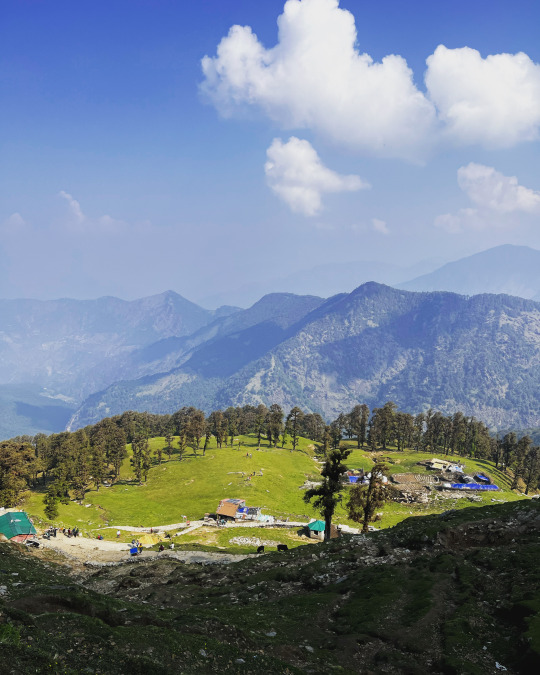
Green meadows on the Tungnath trek
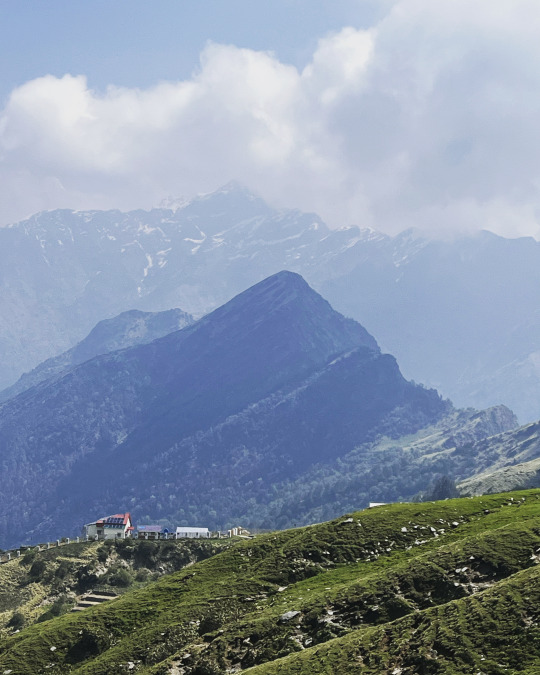
Mountains around the Tungnath trek
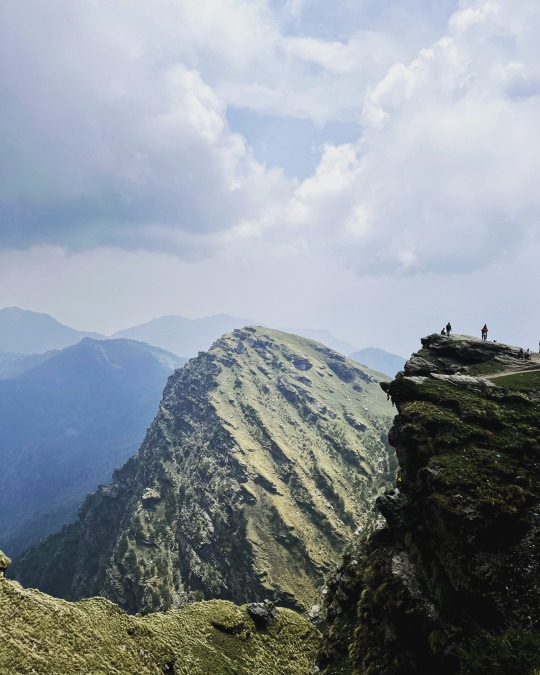
Mountains around the Chandrashila Trek
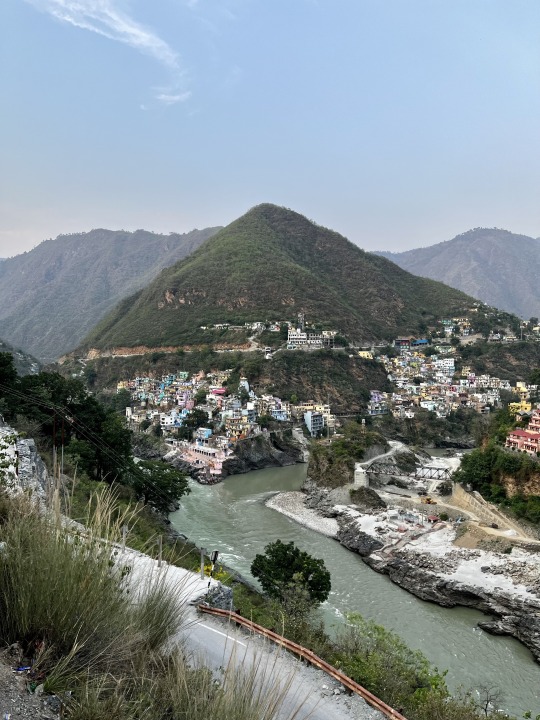
Devprayag - holy confluence of river Alaknanda and Bhagirathi, forming the river Ganges
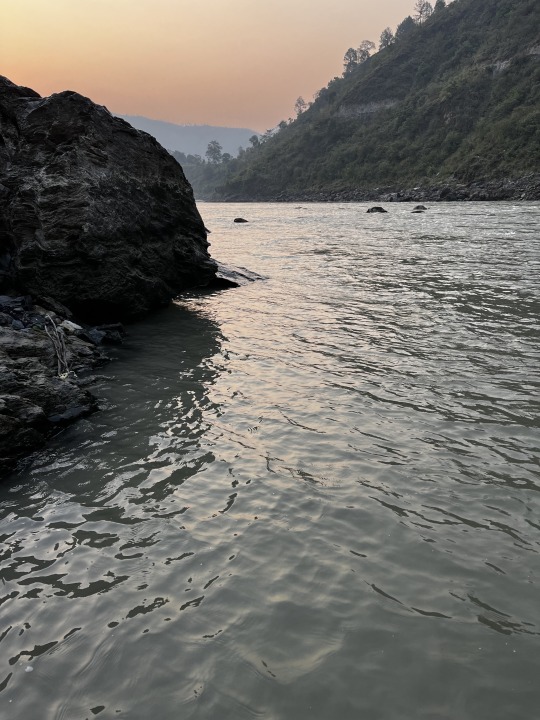
River Alaknanda at Jayalgarh, Srinagar
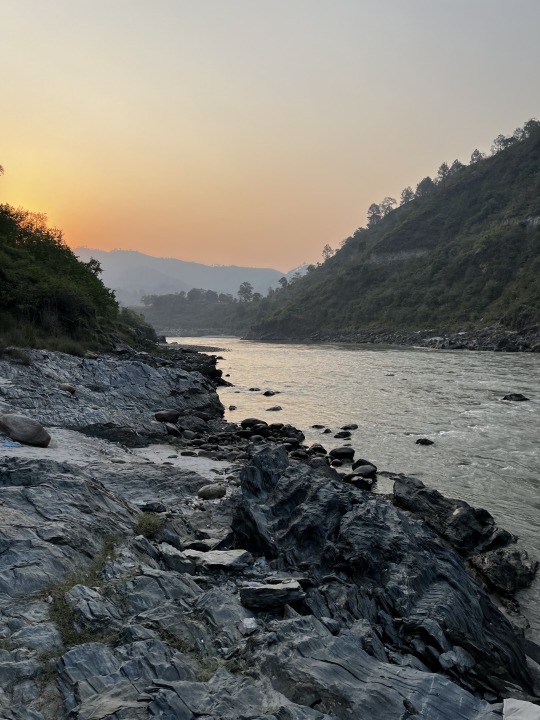
Rocky banks of river Alaknanda at Jayalgarh, Srinagar
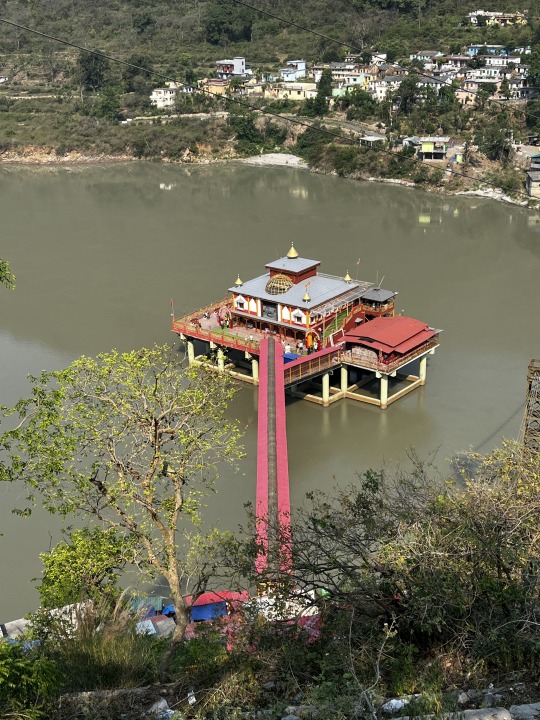
Jai Maa Dhari Devi Temple, Srinagar
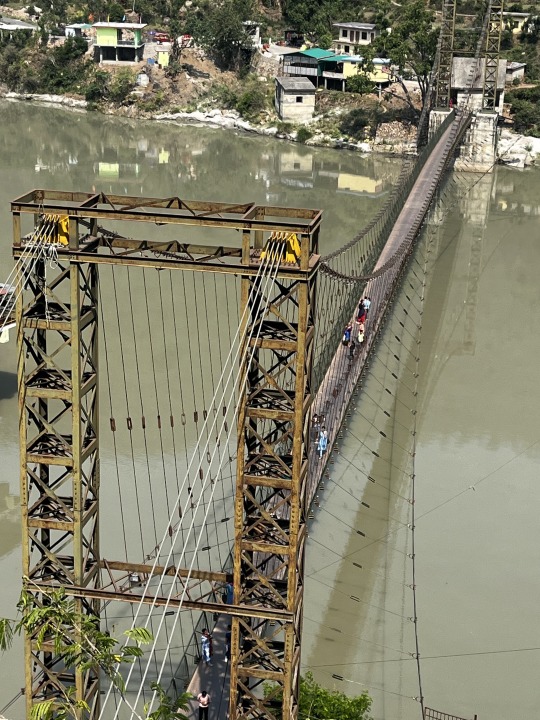
A suspended bridge along side Maa Dhari Devi Temple
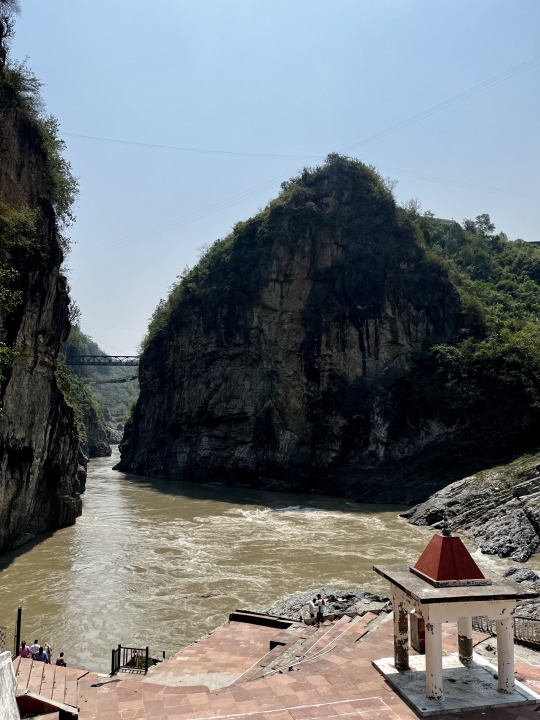
Koteshwar Mahadev Temple
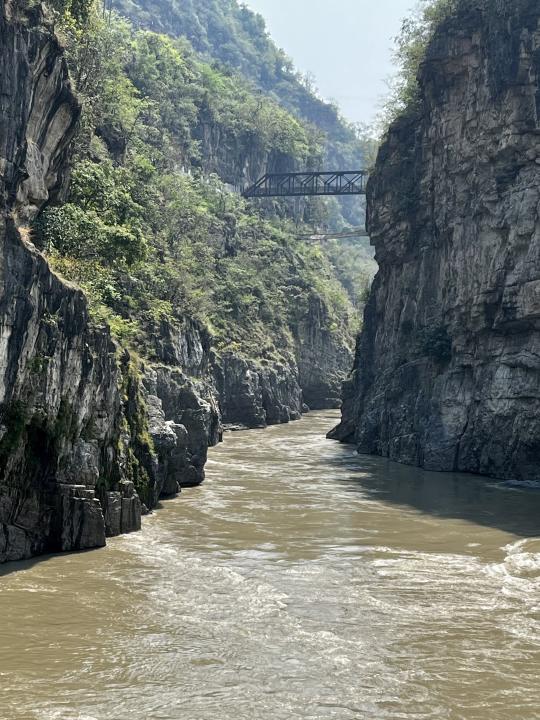
The view of the Koteshwar rocks with river Alaknanda passing through the gap
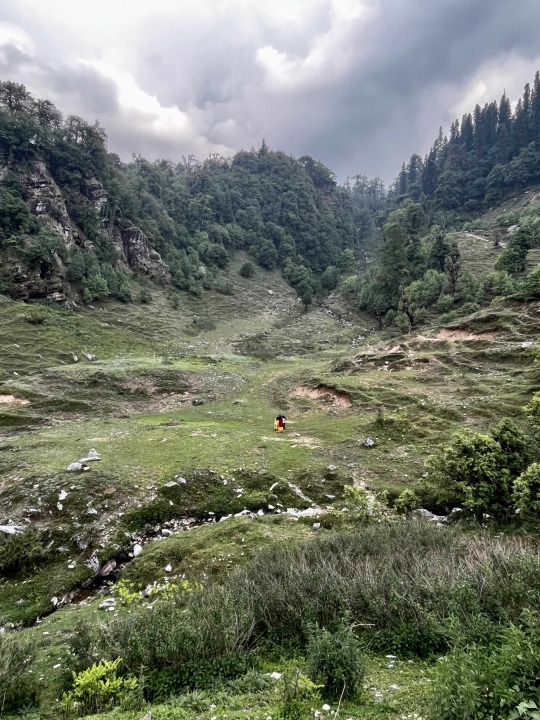
Chopta valley
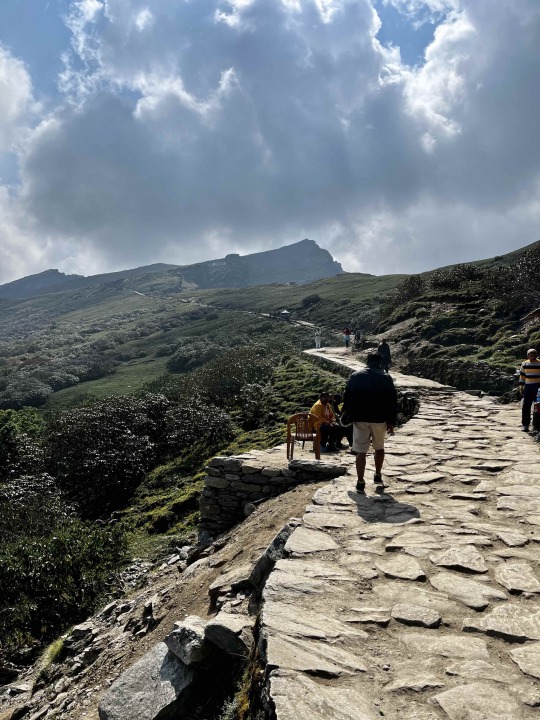
Trek to Tungnath ji
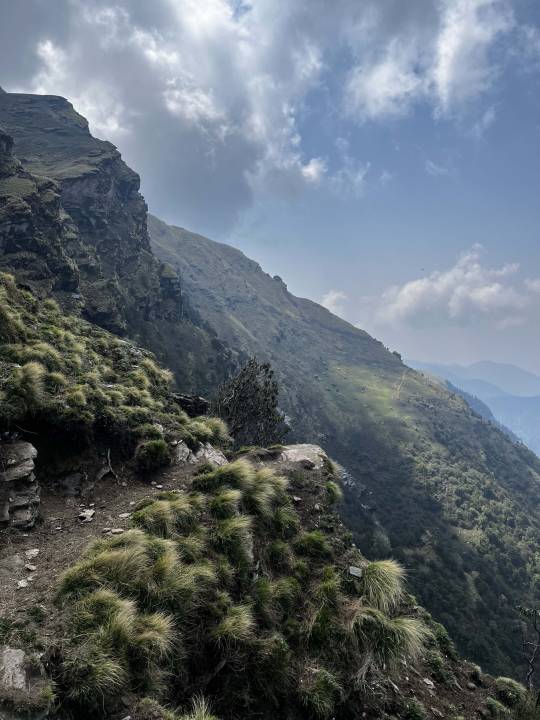
Trek to Chandrashila
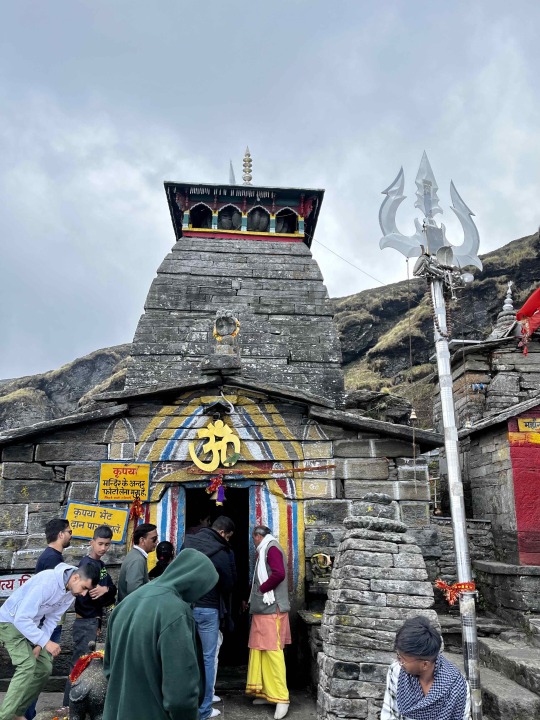
Tungnath Mahadev temple
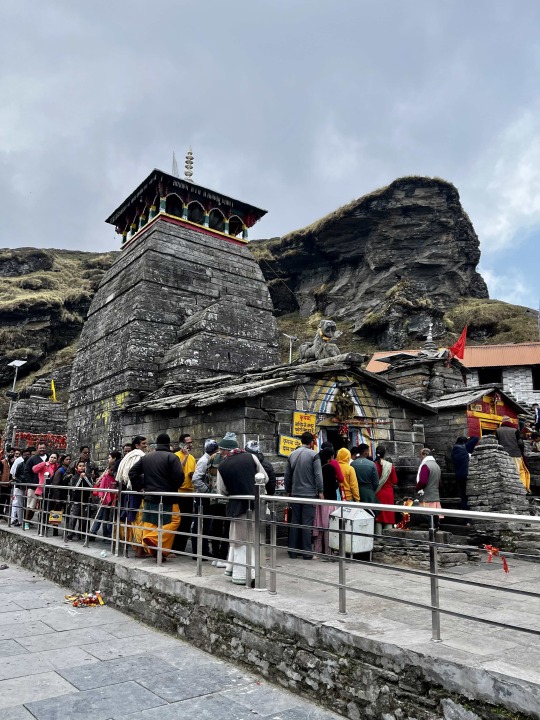
Tungnath Mahadev Temple
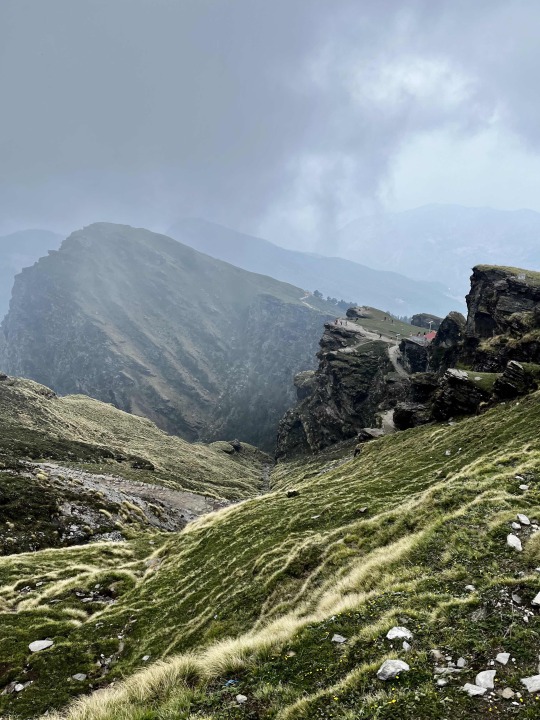
Trek to Chandarshila
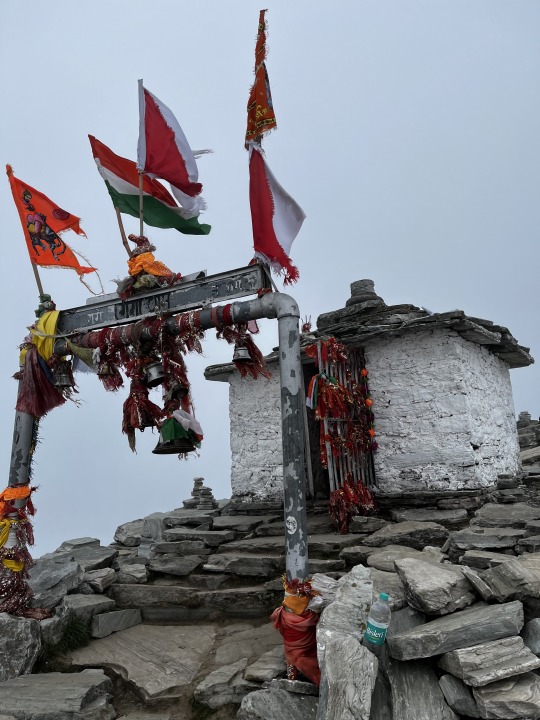
Chandrashila summit - the Ganga temple
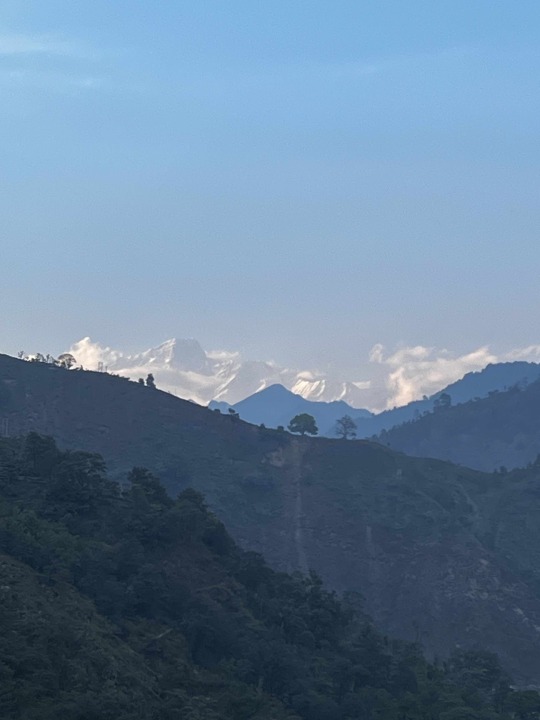
Kedar himalaya peaks visible from Ukhimath
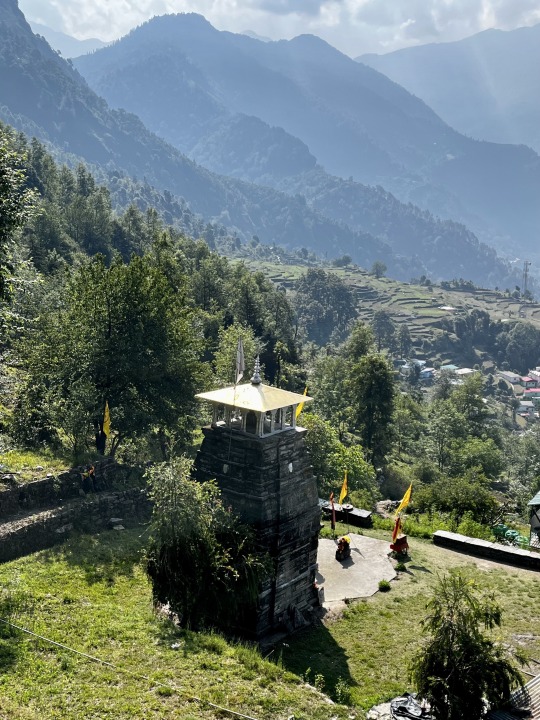
A Lord Mahadev temple at Sari Village
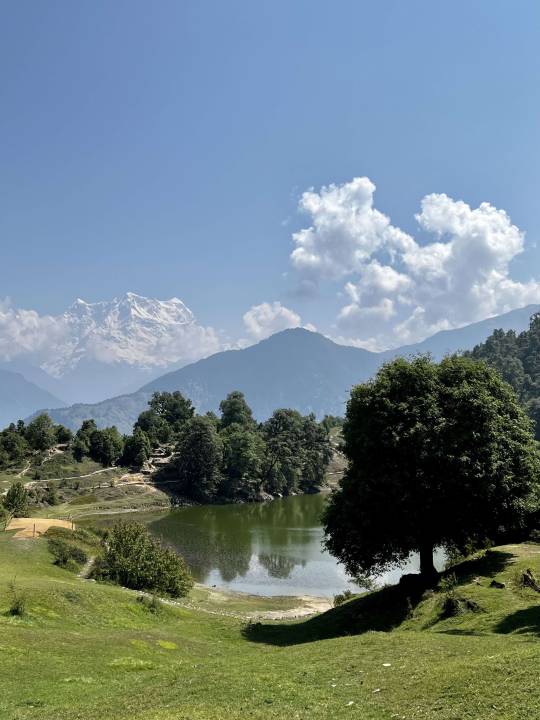
Deoria Tal
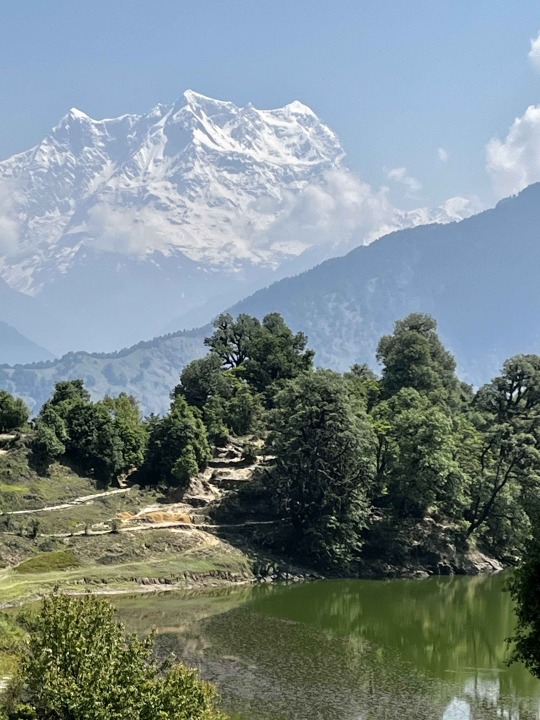
Deoria Tal + Chaukhamba peaks
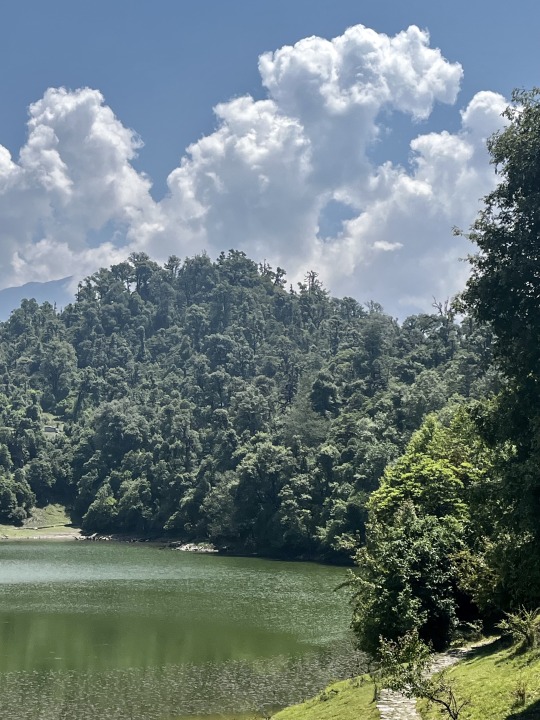
Deoria tal and the dense forestry around it
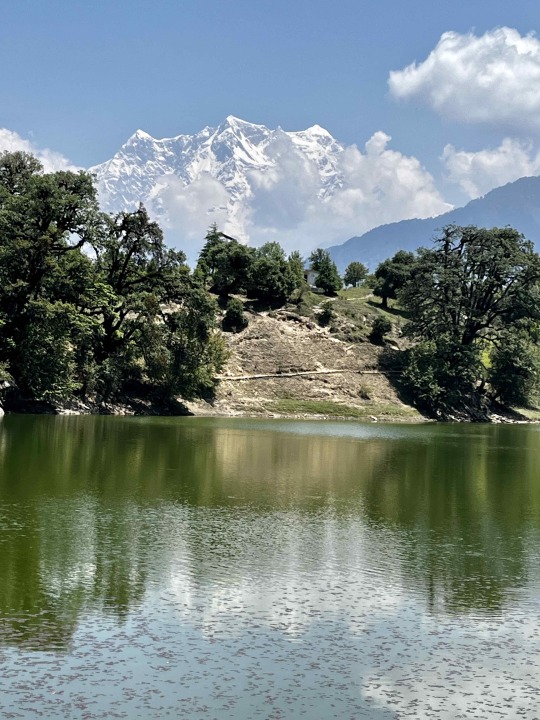
Deoria Tal lake
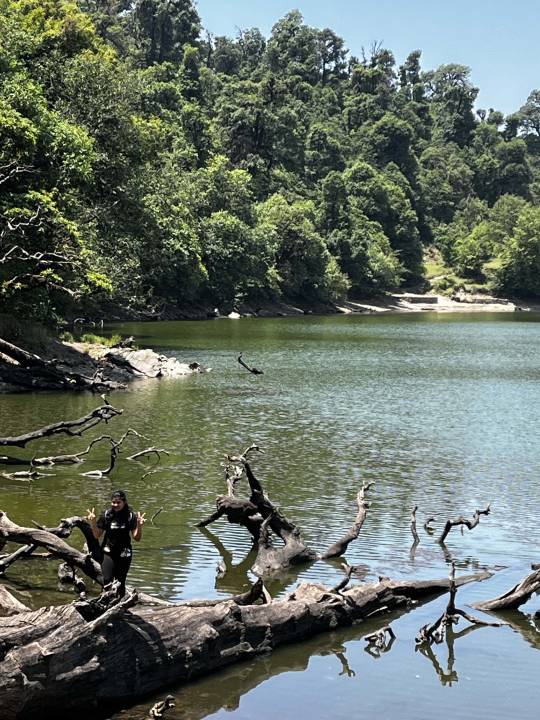
Deoria Tal lake
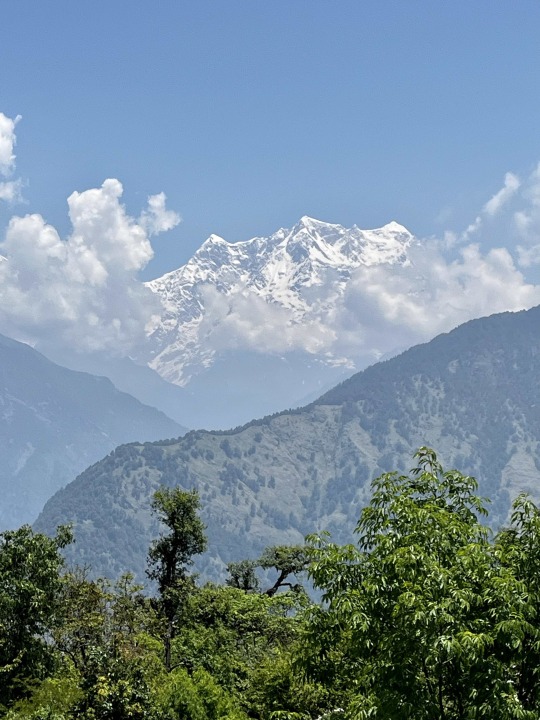
The imposing Chaukhamba Himalaya range
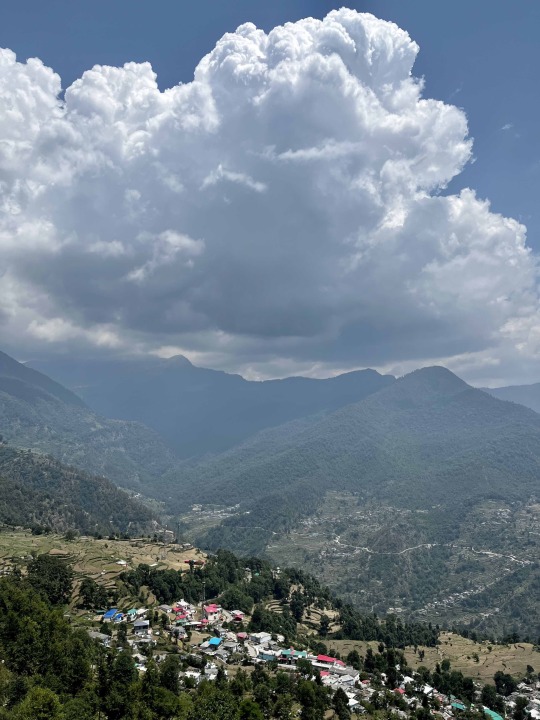
Sari village from up above the trek to Deoria Tal
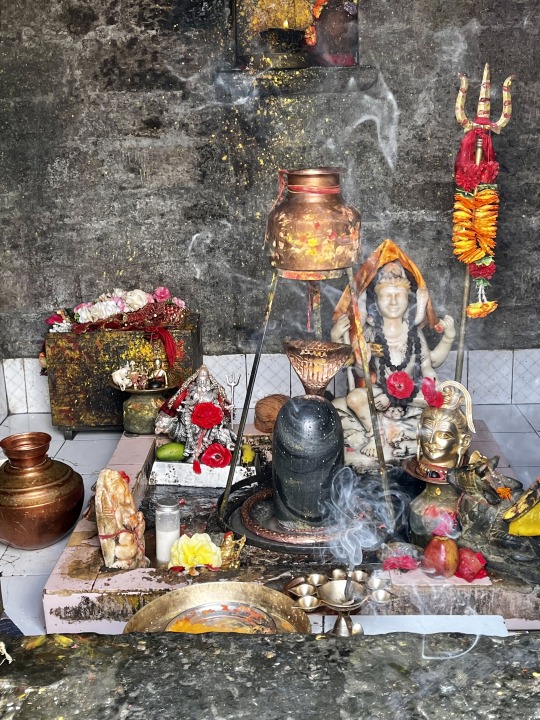
Deities inside the Sari village temple
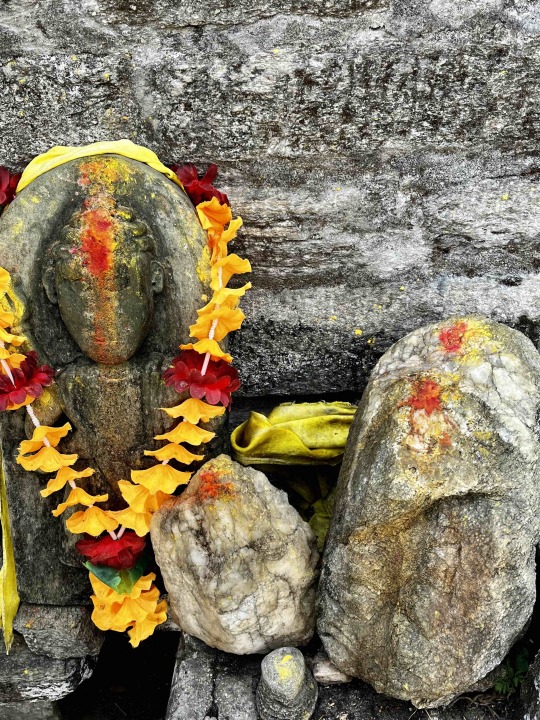
Stone shaped deities placed at the Sari village temple
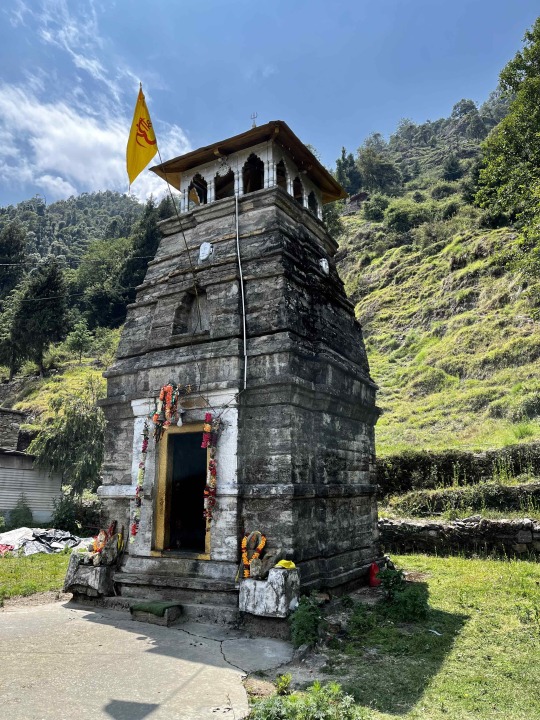
Sari village temple of Lord Shiva
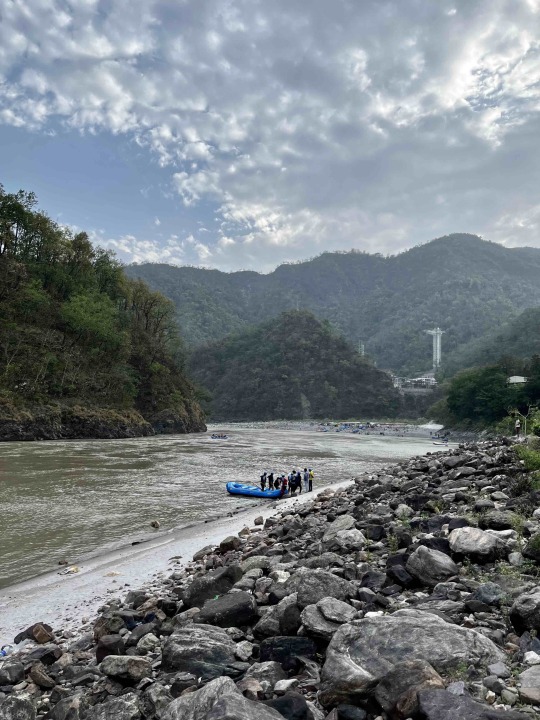
Rishikesh - Shivpuri, the Ganges banks
#tungnath#chopta#chandrashila#sari#sarivillage#deoria#deoriatal#jayalgarh#srinagar#koteshwar#mahadev#koteshwarmahadev#dharidevi#alaknanda#devprayag#ganga#trekking#uttarakhand#chaukhamba#himalaya#agyastmuni#rishikesh#ukhimath#mountains#lake#rudraprayag#agastmuni#ganges#confluence
0 notes
Text
Kumarsain Jatar | Kumarsain 4 Sala Mela | First Day

View On WordPress
#4 sala mela#budda devta g#koteshwar mahadev#Kotgarh#kullu#kumarsain#kumarsain 4 mela#kumarsain jatar#malendu devta#mandholi temple#marich devta
0 notes
Photo




Shri Koteshwar Temple at Achalgarh Fort, Mount Abu, Rajasthan Deepanshu Vashishtha wrote : Shri Koteshwar Mahadev Temple, Achalgarh Temple Courtyard, Achalgarh, Mount Abu, Rajasthan.
Shri Koteshwar Temple is dedicated to Lord Shiva. It was built in the 11th century by the invader Mahmud Ghaznavi, who came to plunder India from Ghazni.
This is the only temple in which the evidence of the integration of the prayer system of Muslims and the worship system of Hindus has been presented. When Mahmud Ghaznavi looted, destroyed 108 temples located in the Achaleshwar temple courtyard, he attacked the Panchadhatu idol of Nandi of Shri Achaleshwar temple, then miraculously a swarm of bees attacked him and his army. Then his army fled and Mahmud Ghaznavi apologized to Mahadev. He melted his weapons and donated a trident to Shri Achaleshwar temple and got it installed near Nandi and got Shri Koteshwar Mahadev temple constructed in Muslim Hindu style.
The outer construction of the sanctum sanctorum of this temple was done in the Muslim style and the entire temple was built in the Hindu style.
Also, in the sanctum sanctorum, the Shivling has been made protruding out of the wall, which shows the unity of the prayer system of Muslims and the worship system of Hindus.
ॐ गुरुवे नमः 🙏🏻 ॐ नमः शिवाय 🙏🏻 🙏🏻🕉️❤️🚩🙏🏻 (via Instagram: @deepanshu_vashishtha14)
47 notes
·
View notes
Text
Hotel Booking in Dwarka Gujarat and the top 5 must-see beautiful beaches in Gujrat.
Who wouldn’t be happy to have a beach holiday! Gujarat's coastline stretches for up to 1666 kilometres and is home to some of the country's most beautiful beaches and beach resort in Dwarka, Gujarat. Gujarat is an excellent tourist location for those who enjoy visiting seashores. There are plenty of hotels in Dwarka Gujarat which offer beautiful scenic views. Gujarat's beaches allow you to unwind and relax in the company of flawless, pristine nature, far from the craziness of the city's madding crowds.
You'd have just enough sand and waves out there to engage in amusing frolics and pleasant activities. These are ideal spots for lazing in the sun and gazing out at the magnificent sea in front of you. Hotel Ginger Dwarka is famous for hotel bookings in Dwarka Gujarat among Gujarat tourism. The famed shoreline also provides some traditional water sports activities that are ideal for an entertaining trip.
Gujarat's beach locations are also noted for their gorgeous temples. Somnath temple, Gopnath Mahadev temples, and Koteshwar temple are among the temples placed right on the beach. The cherry on the cake will be that you could stay at our Hotel Ginger, Dwarka which is one of the best beach resorts in Dwarka,Gujarat. The months of October to May are ideal for visiting Gujarat beaches. Exploring Gujrat's beaches, in addition to its famous structures, culture, and temples, would be a pleasant experience.
The Gujarat Beaches Map can give you an idea of how far you'll have to travel with your friends and family to enjoy the sun and sand.
We at Bloomith's Hotel Ginger Dwarka thought we could assist you by compiling a list of the top 5 Best Beaches in Gujarat that you should visit. These beaches are hypnotising, lovely, and full of potential for making your outing a huge success.
Check the Gujarat Beaches List to add to your bucket list:
Shivrajpur Beach
Dwarka is a fantastic location for a holiday filled with sightseeing, pilgrimage, beach activities, and even bird and marine life viewing. Head north from Dwarka to the beaches of Shivrajpur, which are only 15 minutes away from the Rukmani temple. This lengthy, clean beach spans between a lighthouse and a rocky shoreline near Shivrajpur village. It's perfect for a long walk. Okha Madhi, with its excellent sands, and Poshitara, with its coral reefs and marine life, are two more must-see coastal spots near Dwarka. Thousands of flamingos, hundreds of pelicans, flocks of painted storks, and a variety of other species migrate to the Charakhla salt pans in Mithapur. From Okha, you can take the ferry to the island of Bet Dwarka which has temples, fine beaches and a profusion of marine life. Hotel Ginger, is one of the top 10 best places to stay in Dwarka Gujarat.
Nearby Attractions: Dwarkadhish Temple, Beyt Dwarka, Nageshwar Jyotirlinga
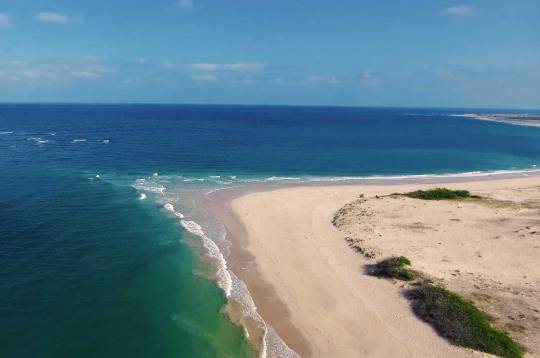
2. Mandvi-Kutch Beach
Mandvi Beach, in Gujarat's Kutch area, is one of the state's most famous tourist destinations. The golden yellow sand on the beach contrasts sharply with the blue emerald seas slamming on the coasts. At Ahmedpur's Mandvi beach, visitors can participate in a variety of enjoyable activities. Tourists can go surfing, skiing, speed boating, water scooting, and parasailing, to name a few activities. The beach's tranquil environment makes it a great location for spending quality time with your loved ones. Mandvi-Kutch beach can be contacted via rental cabs and buses only because it is connected to only Bhuj. You could get a jeep or bus from Bhuj quite frequently to get to Kutch. There are a lot of 4 star hotels available for booking your hotel stay.
Nearby Attractions: Vijay Vilas Palace, Narayan Sarovar Temple
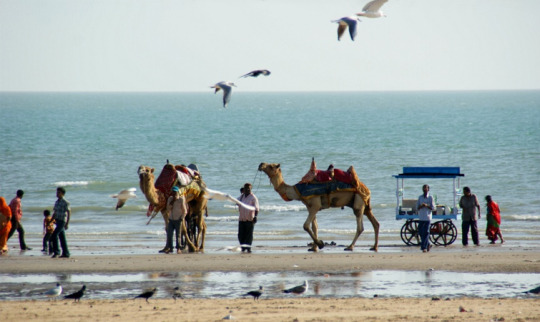
3. Ghoghla Beach:
Do you want to have a relaxing getaway with a dash of adventure? If that's the case, Ghoghla Beach is the place to be. It's in the north of Diu, which is recognised as Gujarat's most beautiful beach, attracting visitors from all over the world.The Beach is on the outskirts of the town; hence it is still the less explored beach which makes it one of the places to visit in Diu. It's the ideal spot for a relaxing break from the hustle and bustle of everyday life. It's a site where you'll find everything you need, from food stalls to thrilling water sports like surfing and paragliding. The famed Goddess Kalika temple attracts a large number of Hindu pilgrims. The beach is a one-stop shop for all types of travellers looking for a relaxing break with spectacular sunsets.
Nearby Attractions: Diu Fort, Noida Caves
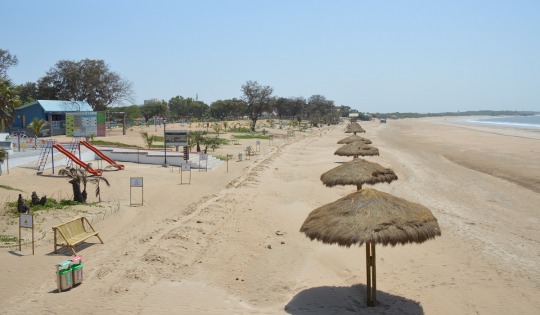
4. Beyt Island, Dwarka – White Sand Beach
Beyt Island, also known as Bet Dwarka or Shankhdhar, is a small island around 30 kilometres from Dwarka's main town. Prior to the establishment of Okha, this was the seashore where Gujarat's trading and shipping took place. This site is significant for religious people since Dwarka is thought to be the birthplace of Lord Krishna. The beach is near to Dwarka and may be accessed via the Okha port. The island is surrounded by a few temples, white sand beaches, and coral reefs at the opening of the Gulf of Kutch. All of these factors combine to make this a must-see beach. There are a variety of activities accessible at the beach for tourists' enjoyment, including marine tours, camping, pincins, and more. Hotel bookings in the best 4 star hotels of Dwarka Gujrat generally get reserved quickly. So if you are planning to visit in the peak season make sure you do your hotel bookings in Dwarka Gujarat well in advance.
Nearby Attractions: Haji Kirmani Pir, Kachariyu, Krishna Temple, Hanuman Temple, and a Gurdwara.

5. Dwarka Beach
Dwarka Beach is a stunning beach located beside the Rukmani River. Aside from its natural beauty, the site holds religious significance for the Hindu population all over the world. Dwarka is not only claimed to be Lord Krishna's kingdom, but it was also founded thousands of years ago.Due to the presence of the sacred Dwarkadheesh temple or Jagat Mandir in close vicinity, the value of Dwarka seashore increases threefold. Tourists go to Dwarka Beach because of its incredible marine life. Marine species such as urchins, octopus, starfish, jellyfish, sea turtles, and dolphins are frequently seen here. At the Dwarka beach, visitors can enjoy recreational activities such as swimming and scuba diving. There are a lot of beach resorts near Porbander and Jamnagar which are famous among Gujarat tourism for hotel bookings in Dwarka, Gujarat.
Nearby Attractions: Dwarkadhish temple, Nageshwar Jyotirlingas temples, the famous lighthouse and Rukmini temple.
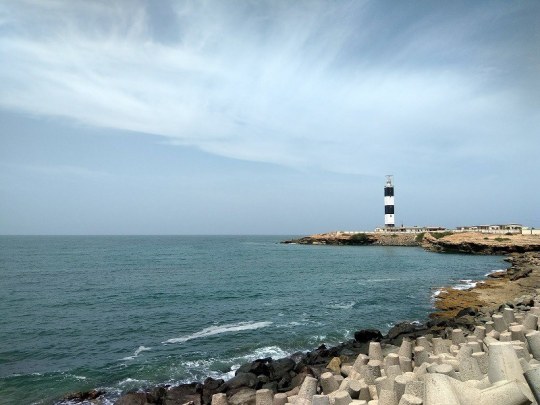
To Conclude:
Gujarat beaches are the place to go if you want a relaxing vacation filled with adventure and local tourist attractions. Aside from the beautiful sun and golden sand, water sports like surfing and parasailing are available, making it a popular destination for adventure seekers. Hotel Ginger, Dwarka being popular for hotel booking in Dwarka Gujarat among tourists. So go ahead and book a trip to Gujarat for yourself!

1 note
·
View note
Text
Uttarakhand Tourism: Koteshwar Mahadev Temple, Rudraprayag
Uttarakhand Tourism: Koteshwar Mahadev Temple, Rudraprayag
Around 3kms trek from Rudraprayag takes you to Koteshwar Mahadev Temple. It is a cave temple and is dedicated to Lord Shiva. Situated at such a peaceful location, this holy shrine is a must see in Uttarakhand.
The legend has it that when Lord Shiva was hiding himself from Pandavas (As the Pandavas were seeking repentance from Lord Shiva after killing Kauravas) and was heading towards Kedarnath,…
View On WordPress
0 notes
Text


Koteshwar Mahadev Temple on the eve of Saawan.
0 notes
Text
Clean Bagmati campaign
About three metric tons of garbage has been managed from the Bagmati river by cleaning its western bank near the Koteshwar Mahadev Temple on Saturday. In the 477th week of the Bagmati Sanitation Campaign, the river bank of Srinagar Ganesh Mandir Chowk in the western part of Koteshwor Mahadev has been cleaned. MP of Dailekh Parbati Bishunkhe, high-empowered Bagmati Committee chairperson Uddhav…

View On WordPress
0 notes
Photo

Koteshwar Mahadev Temple પર My baby ⭐ https://www.instagram.com/p/CX8FvOGrEQP/?utm_medium=tumblr
0 notes
Photo

The Man The Mith The Legend ✌️ #uttrakhandheaven #peaceminusone #imajrwt #goodvibesonlyplease #koteshwar (at Koteshwar Mahadev Temple) https://www.instagram.com/p/CNpp7s1pJo7/?igshid=m4t9jaqekz6t
0 notes
Text
Koteshwar Mahadev | History Behind Place of Origin
Koteshwar Mahadev | History Behind Place of Origin
Probeel SSb camp Kumarsain Probeel (the Old Name of the Place ) now is Shrambal camp. It is said that this is the original place of the deity. It was here that the deity gives us the signs of the existence of some power. Since ancient times the Brahmins of Batavda village were returning after taking a bath from the Sutlej. Their path was blocked by a dragon. Koteshwar Mahadev At first, the…

View On WordPress
#Batavda village#batawada#bharamin#koteshwar mahadev#koteshwar mahadev temple madholi#koti temple#kumarsain#probeel#shrambal camp#ssb camp kumarsain
0 notes
Photo

Koteshwar Mahadev ❤️ #Ganga #KoteshwarMahadev #Koteshwar #Uttarakhand #TehriGarhwal #Peace #mahadev (at Koteshwar Mahadev Temple) https://www.instagram.com/p/CDMe9WMJrED/?igshid=1fhardlaepc1d
0 notes
Photo



Koteshwar Mahadev Temple, Kutch, Gujarat
Aman Channa wrote : The last outpost of human construction at the western most limit of India is located Koteshwar, in the Kutch district of Gujarat.
The story of Koteshwar begins with Ravana, who won a boon from Lord Shiva for an outstanding display of piety.
This boon was in a form of Shivlinga of great spiritual power, but which Ravana in his arrogant haste, accidentally dropped and it fell to the earth at Koteshwar. To punish Ravana for his carelessness, the linga turned into thousand identical copies.
Unable to distinguish the original, Ravana grabbed one and departed, leaving the original one here, around which Koteshwar temple was built.
(via Aman Channa @pixcellence_by_aman.channa)
65 notes
·
View notes
Text
Amazing Seashore Temples of India
We always see a temple or any religious place in terms of spirituality and religiosity. It is not just that, if seen in a traveller's perspective you can find interesting aspects about the place. The list of famous temples caters to every kind, the devotees, the photography fanatics, the history buffs, and the experience seekers as well.

Shree Somnath Temple-Prabhas Patan, Veraval, Gujarat, India
The site of Somnath has been a pilgrimage site from ancient times on account of being a triveni sangam (the confluence of three rivers: Kapila, Hiran and the mythical Sarasvati). Soma, the Moon god, is believed to have lost his lustre due to a curse, and he bathed in the Sarasvati River at this site to regain it. To read more click the below link
Shree Somnath Temple

Sri Murudeshwara Temple-Bhatkal, Uttara Kannada (Karwar), Karnataka, India
Ravana lost Atma-Linga to Sri Vinayaka and decided to destroy it. Finally he threw the cloth covering the Atma-Linga to a place called Mrideshwar and the temple is said to be built around that piece of linga. To read more click the below link
Sri Murudeshwara Temple

Shree Koteshwar Mahadev Temple-Narayan Sarovar, Kutch, Gujarat, India
Ravana, in his arrogant haste, accidentally dropped and it fell to earth at Koteshwar. To punish Ravana for his carelessness, the linga turned into a thousand identical ones. Unable to distinguish the original, Ravana grabbed one and departed, leaving the original one here. To read more click the below link
Shree Koteshwar Mahadev Temple

Shree Bhadreshwar Jain Temple Bhadreshwar, Mandvi, Gujarat, India
Built in the line of Dilwara Temples, the temple complex has 53 shrines, a major central temple and 52 minor shrines around it, one of which reputedly holds the original Parshwanath idol from 500 B.C. To read more click the below link
Shree Bhadreshwar Jain Temple

Shri Benth Dwarkadhish Temple-Beyt Dwarka, Okhamandal, Gujarat, India
Bet Dwarka is believed to have been the actual residential place of Lord Krishna during his ruling years at Dwarka. In Mahabharata we often come across the reference of Bet Dwarka known by the name of ‘Antardvipa’ to which people of the Yadava clan needed to travel by boat. To read more click the below link
Shri Benth Dwarkadish Temple

Mul Dwarka Temple-Visavada, Porbandar, Gujarat, India
It is believed when Lord Krishna travelled from Mathura to Dwaraka he first established himself in Mool Dwarka and a stone slab commemorating his arrival here. To read more click the below link
Mul Dwaraka Temple

Mukti Dwaraka Temple-Prabhas Patan, Veraval, Gujarat, India
It was from this place Lord Sri Krishna vanished and climbed to Srivaikuntam according to the solicitation of the devas. Krishna, reclining under a pipal tree was shot in the foot by a Bhil huntsman named Jara called Dehotsarg. To read more click the below
Mukti Dwaraka Temple

Shri Chandrabhaga Shakti Peeth Temple-Prabhas Patan, Junagadh, Gujarat, India
It is the place where Sati’s Udara (Stomach) fell and the idol of Devi Sati is worshipped as Maa Chandrabhaga (the moon goddess) and Lord Shiva as Vakratunda (one with a curved body). To read more click the below link
Shri Chandrabhaga Shakti Peeth Temple

Nishkalank Mahadev Temple-Koliyak, Bhavnagar, Gujarat, India
The temple is believed to be built by the Pandavas after the Kurukshetra War and has 5 swayambhu Shiva lingams with Nandi statues facing them. This temple is submerged during high tides in the sea and emerges during low tides to reveal itself majestically twice a day. To read more click the below link
Nishkalank Mahadev Temple

Sri Janardhana Swamy Temple-Varkala, Thiruvananthapuram, Kerala, India
Lord Brahma came to the earth to perform a Yaga here, immersed in doing that he forgot his job of creation. Lord Vishnu came to Varkala to remind Lord Brahma about it in the form of a very old man. To read more click the below link
Sri janardhana Swamy Temple

Shri Bhagavathi Amman Temple-Kanyakumari, Tamilnadu, India
Kanyakumari Temple is one of the 51 Shakti Peethas. It is believed that the back spine area of Sati’s corpse fell here creating the presence of Kundalini Shakti in the region. To read more click the below link
Shri Bhagavathi Amman Temple

Tiruchendur Subramanya Swamy Temple-Tiruchendur, Thoothukudi, Tamilnadu, India
Muruga came here for the conquest along with his army, he found it to be very small and ordered the celestial architect Viswakarma to expand it and is believed to be the place where Muruga conquered the demon Surapadma. To read more click the below link
Tiruchendur Subramanya Swamy Temple

Sri RamanathaSwamy Temple-Rameswaram, Ramanathapuram, Tamilnadu, India
Rama, the seventh avatar of the god Vishnu, built from sand and prayed to this Linga of Shiva to absolve him of the sin committed during his war against the king Ravana in Sri Lanka. To read more click the below link
Sri Ramanatha Swamy Temple

Sri Kodandaramar Temple-Rameswaram, Tamilnadu, India
The temple is believed to be the place where Vibhishana, the younger brother of Ravana, asked Rama and his vanara (ape men) army for refuge and is the only historical structure to survive the 1964 cyclone that washed away Dhanushkodi. To read more click the below link
Sri Kodandaramar Temple

Sri Vedaranyeswarar Temple-Vedaranyam, Nagapattinam, Tamilnadu, India
The Vedas worshipped Lord Shiva in this place, giving the name "Vedaranyam" to the place. Rama, the seventh avatar of god Vishnu, is believed to have visited Vedaranyam to absolve himself from the sins committed in the war against the Illangai King Ravana. To read more click the below link
Sri Vedaranyeswarar Temple

Sri Ashtalakshmi Temple-Chennai, Tamilnadu, India
The temple measures 65 ft in length and 45 ft in breadth with three stories and are depicted on a multi-tier complex in such a way that visitors can visit all the shrines without stepping over any of the sanctums. To read more click the below link
Sri Asthalakshmi Temple

Sri Lakshmi Narasimha Swamy Temple-Antarvedi, Andhra Pradesh, India
This is an architectural creation initiated by King Narasimhavarman II in mid 7th century starting with the Cave temples and the monolithic Rathas as seen in the Atiranachanda cave, the Pidari rathas and the Tiger cave. To read more click the below link
Sri Lakshmi Narasimha Swamy Temple

Sri Somalingeswara Swamy Temple-Appikonda, Narsipatnam, Andhra Pradesh, India
Kapila Maharshi instituted the idol of Sri Someswara Swamy on a hill and the temple was built in 1070 by King Kulottunga I of the Chola dynasty, and referred to as the Chola Monument. To read more click the below link
Sri Somalingeswara Swamy Temple

Sri Venkateswara Swamy Temple-Venkateswara Konda, Vizag, Andhra Pradesh, India
It is believed to have been built by a European Captain Blackmoor in 1866 with a small steeply pyramidal entrance gopura. , according to the Telugu inscriptions. To read more click the below link
Sri Venkateswara Swamy Temple

Sri Bala Tripura Sundari Sametha Saptha Rushiswara Temple-Rushikonda, Visakhapatnam, Andhra Pradesh, India
Lord Siva killed a demon called Tripurasura with goddess Sri Bala Tripura Sundari Devi at this place in Krita Yuga. There is a cave in this temple which starts from this temple and ends at Srisailam temple where many Sages and saints had performed penance here. To read more click the below link
Sri Bala Tripura Sundari Samethe Saptha Rushiswara Temple

Chakra Tirtha Temple-Badasirei, Puri, Odisha, India Inteodpu003) The temple has an idol of Lord Jagannath known as Chakranarayan and the wheel which is carved out of black granite and is always found to be under water. To read more click the below link
Chakra Tirtha Temple

Sri Mahabaleshwar Temple-Kumta, Gokarna, Karnataka, India
The temple deifies the Pranalinga ("the reality of God which can be captured by the mind") also called Atmalinga or Shiva Linga . In legend, it is said that the deity of the temple will bestow immense blessings to devotees, even to those who only glimpse it. To read more click the below link
Sri Mahabaleshwar Temple

Shree Ganpatipule Mandir-Ganpatipule, Maharashtra, India
Hindu god Ganapati, taking umbrage at a remark made by a native lady, moved to Pulé from his original abode of Gulé. This 400-year-old Ganpati idol at Ganpatipule is said to have sprung up from the soil. To read more click the below link
Shree Ganapatipule Mandir

Kunkeshwar Temple-Devgarh, Maharashtra, India
This temple has alluring architecture reminiscent of South Indian style of temple architecture. Yadav Kings built this temple in 1100 A. D. and is also famous as Kashi of South Konkan. To read more click the below link
Kunkeshwar Temple

Harihareshwar Temple-Harihareshwar, Maharashtra, India
River Savitri that originates at Mahabaleshwar merges with the Arabian Sea at Harihareshwar, is also known as ‘Devghar’ or ‘House of God.’ Inside the ancient temple, there is linga from the medieval period. To read more click the below link
Harihareshwar Temple

Azhimala Siva Temple-Vizhinjam,Thiruvananthapuram, Kerala, India
The granite cave encloses a one-celled shrine with a loose sculpture of Vinadhara Dakshinamurti. The outer wall of the cave depicts unfinished reliefs of Shiva as "Tripurantaka" on the left and as "Nataraja" with Parvati on the right. To read more click the below link
Azhimala Siva Temple

Shore Temple-Mahabalipuram, Tamilnadu, India
This is an architectural creation initiated by King Narasimhavarman II in mid 7th century starting with the Cave temples and the monolithic Rathas as seen in the Atiranachanda cave, the Pidari rathas and the Tiger cave. To read more click below link
Shore Temple
0 notes